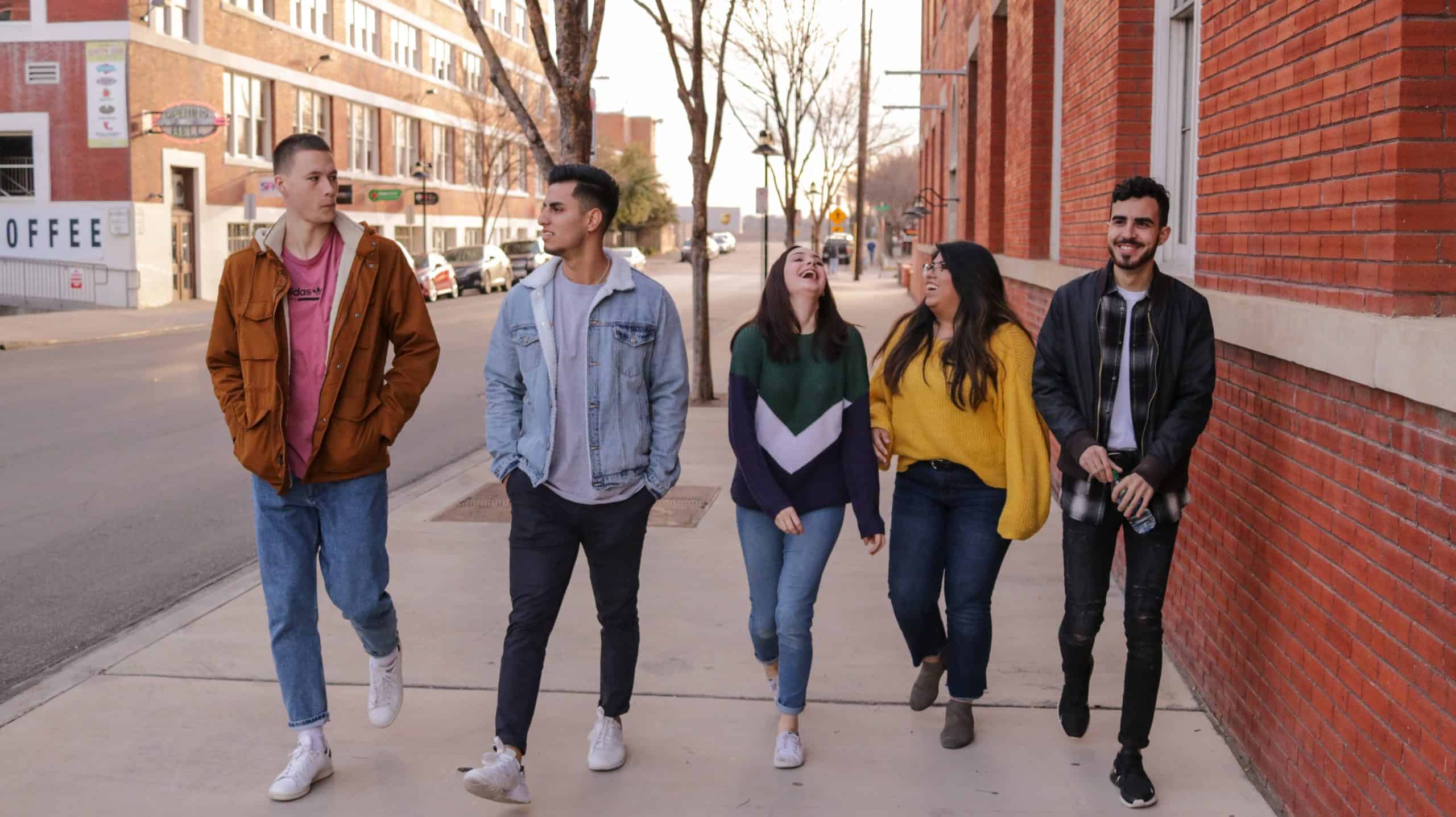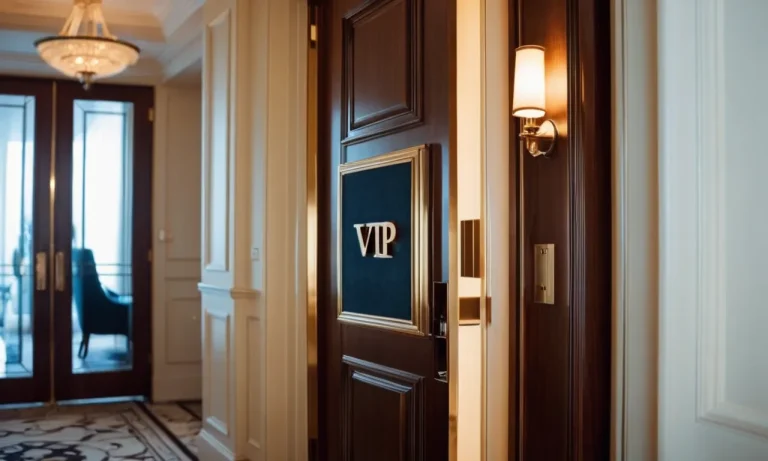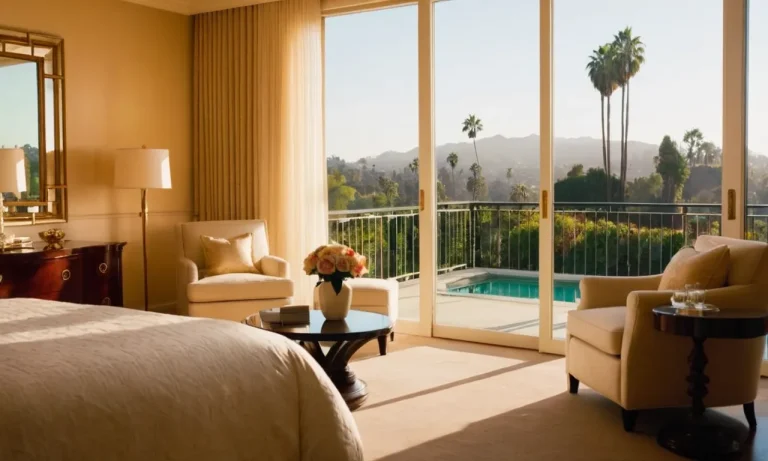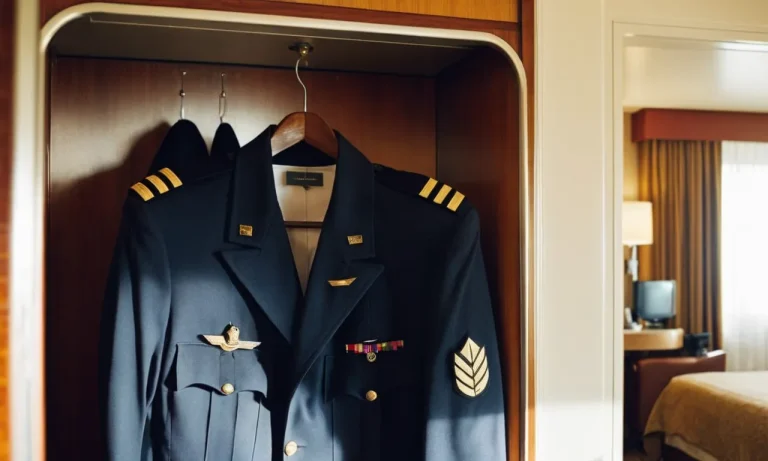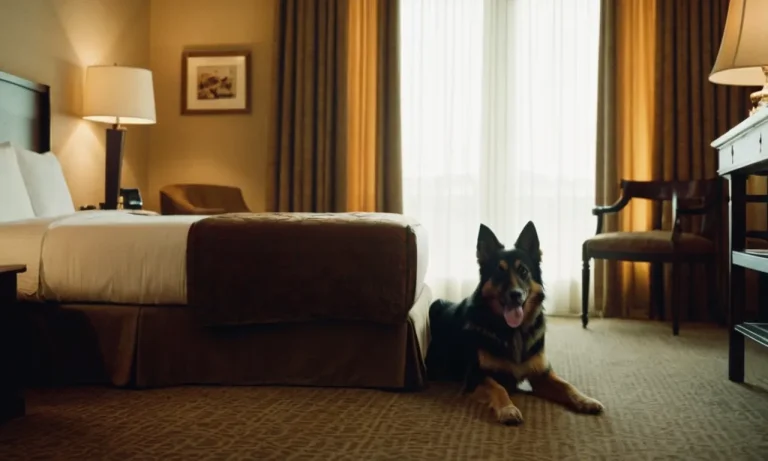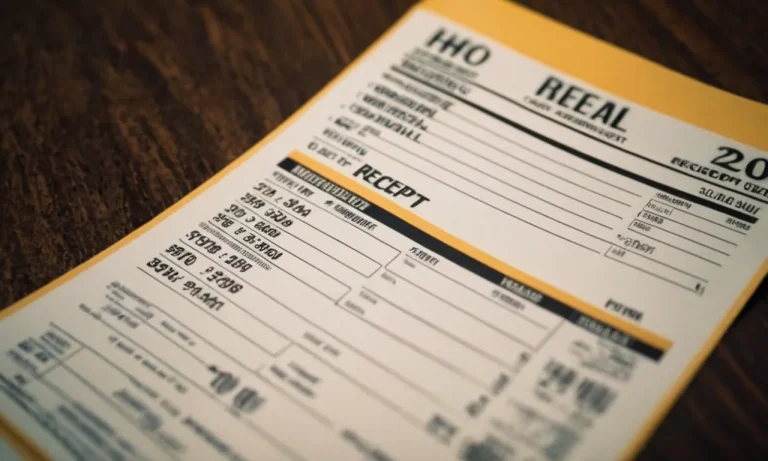Can a Minor Check Into a Hotel? A Comprehensive Guide
Traveling as a minor can be an exciting adventure, but it also comes with its own set of challenges and considerations. One of the most common questions that arise is whether a minor can check into a hotel without an adult present.
This is a valid concern, as hotels have specific policies and legal requirements in place to ensure the safety and well-being of their guests, particularly minors.
If you’re short on time, here’s a quick answer to your question: In most cases, minors are not allowed to check into a hotel alone. However, there are exceptions and specific circumstances where it may be permitted, depending on the hotel’s policies, local laws, and the minor’s age.
In this comprehensive guide, we’ll delve into the details surrounding minors checking into hotels. We’ll explore the legal implications, hotel policies, and potential exceptions. Additionally, we’ll provide practical tips and advice for minors and their parents or guardians to ensure a smooth and safe hotel experience.
Legal Age Requirements for Hotel Check-In
When it comes to checking into a hotel, the legal age requirements can be a bit of a gray area, especially for minors. While the rules may seem straightforward at first glance, they can vary significantly across different states and countries. Let’s dive into the nitty-gritty details of this topic.
Age of Majority Laws
The age of majority, also known as the legal age of adulthood, is the age at which a person is considered legally responsible for their actions and decisions. In most states within the United States, the age of majority is 18 years old.
However, there are a few exceptions, such as Alabama and Nebraska, where the age of majority is 19, and Mississippi, where it is 21.
According to Cornell Law School’s Legal Information Institute, the age of majority is crucial in determining whether a minor can enter into legally binding contracts, such as checking into a hotel or renting a car.
In general, minors are not legally permitted to enter into such contracts without parental or guardian consent.
Hotel Liability Concerns
Hotels often have strict policies regarding minors checking in, primarily due to liability concerns. The hotel industry has a responsibility to ensure the safety and well-being of all guests, including minors.
By allowing minors to check in without proper supervision or consent, hotels could potentially face legal issues if any incidents or accidents were to occur.
Many hotels require that minors be accompanied by a parent or legal guardian, or have written consent from a parent or guardian, to check in. This policy helps mitigate potential risks and protects both the hotel and the minor.
According to a survey conducted by Hotel News Resource, 63% of hotels in the U.S. do not allow minors to check in without an adult present.
Variations Across States and Countries
While the age of majority is generally 18 in most states, the specific laws and regulations regarding minors checking into hotels can vary significantly across different states and countries. Some states may have more lenient policies, while others may have stricter rules in place.
For example, in Nevada, minors as young as 16 years old can check into a hotel without a parent or guardian present, provided they have a valid form of identification and a credit card in their name. On the other hand, in New York, minors under the age of 18 are not permitted to check into a hotel without an adult present, regardless of parental consent.
When traveling internationally, it’s essential to research the specific laws and regulations of the country you’re visiting. Some countries may have different age of majority laws or stricter policies regarding minors checking into hotels.
It’s always best to err on the side of caution and have proper documentation or parental consent readily available.
Common Hotel Policies Regarding Minors
Age Restrictions for Unaccompanied Minors
Most hotels have a strict age policy when it comes to unaccompanied minors. Generally, the minimum age requirement for checking into a hotel room without an adult present ranges from 18 to 21 years old, depending on the hotel’s specific rules and the state or country’s laws.
For example, according to Marriott’s policies, guests must be at least 18 years old to reserve a room and check in without a parent or legal guardian present. 😊
The reasoning behind these age restrictions is primarily to protect minors and the hotel from potential liabilities or legal issues. Hotels want to ensure that minors are not placed in situations where they may be at risk or engage in activities that could be harmful or illegal.
Additionally, many hotels require guests to provide a valid credit card upon check-in, which can be challenging for minors who may not have access to their own credit card.
Parental Consent and Authorization Requirements
While some hotels may allow minors to check in with a parent or legal guardian present, they often require additional documentation or consent forms. These requirements vary from hotel to hotel, but they typically involve the parent or guardian providing written authorization, a credit card for incidentals, and contact information in case of emergencies.
For example, Hilton Hotels require guests under 18 to be accompanied by a parent or guardian, or to provide written authorization from a parent or guardian. The authorization must include the parent or guardian’s contact information, credit card details, and acceptance of liability for any damages or charges incurred during the stay.
👍
It’s important to note that some hotels may have even stricter policies, requiring minors to be accompanied by an adult at all times, even if they have parental consent. This is often the case for resorts or hotels with amenities like pools, spas, or casinos, where age restrictions are more stringent.
Exceptions for Emancipated Minors
In some cases, hotels may make exceptions for emancipated minors, who are legally considered adults before reaching the age of majority. Emancipation laws vary by state, but generally, an emancipated minor has the legal rights and responsibilities of an adult, including the ability to enter into contracts, such as hotel reservations.
To check into a hotel as an emancipated minor, you may need to provide documentation proving your emancipated status, such as a court order or official paperwork. However, it’s always best to contact the hotel directly and inquire about their specific policies regarding emancipated minors.
It’s worth noting that according to Statista, only 12% of travelers aged 18-24 prefer to stay in hotels when traveling. This statistic highlights the importance of hotels catering to the needs and policies surrounding younger guests, including minors.
Potential Exceptions and Special Circumstances
School or Group Trips
While it’s generally not permitted for minors to check into hotels on their own, there are some exceptions to this rule. One common scenario is when minors are traveling as part of a school or group trip.
In such cases, the trip organizers (typically teachers or chaperones) can often make arrangements with the hotel to accommodate the underage students. This typically involves obtaining parental consent forms and ensuring adequate supervision is provided throughout the stay.
According to a survey by the American Hotel & Lodging Association, over 60% of hotels allow minors to stay as part of organized group trips with proper adult supervision. It’s worth noting that policies may vary among hotels, so it’s crucial for trip organizers to communicate with the hotel in advance and ensure compliance with their specific requirements.
Family Emergencies
In certain emergency situations, hotels may make exceptions and allow minors to check in without an accompanying adult. For example, if a minor needs to travel unexpectedly due to a family emergency, such as a medical crisis or a death in the family, some hotels may be willing to accommodate them.
However, this is usually done on a case-by-case basis and may require additional documentation or proof of the emergency circumstances.
According to the American Hotel & Lodging Association, hotels have the discretion to make exceptions for minors in emergency situations, but they are not obligated to do so. It’s advisable to contact the hotel directly and explain the situation in detail to increase the chances of being accommodated.
Emancipated Minors
In some states, minors who have been legally emancipated may be treated as adults and allowed to check into hotels without an accompanying parent or guardian. Emancipation is a legal process that grants certain rights and responsibilities to minors, essentially freeing them from the control of their parents or legal guardians.
The Child Welfare Information Gateway states that the specific laws and requirements for emancipation vary from state to state, but generally, emancipated minors can enter into contracts, including hotel reservations, on their own.
However, it’s crucial for emancipated minors to carry proper documentation, such as an emancipation order or court decree, to prove their legal status when checking into a hotel.
While these exceptions exist, it’s always best to check with the specific hotel in advance to understand their policies and requirements regarding minors staying on their premises. Clear communication and proper documentation can often help facilitate a smooth and hassle-free experience for all parties involved.
👍
Tips for Minors and Parents/Guardians
Researching Hotel Policies in Advance
Before booking a hotel stay, it’s crucial to thoroughly research the establishment’s policies regarding minors. Many hotels have specific age requirements and guidelines in place, which can vary widely. Refer to the hotel’s website or call their customer service line to inquire about their rules.
Some hotels may allow minors to check in with a parent or legal guardian present, while others may have stricter policies or additional fees. Hotels.com provides a helpful overview of common hotel policies for minors.
Obtaining Necessary Documentation
If the hotel permits minors to check in, you’ll likely need to provide certain documentation. This may include a notarized letter from the minor’s parent or legal guardian granting permission for the stay, as well as copies of identification documents for both the minor and the parent/guardian.
Some hotels may also require a credit card in the parent/guardian’s name for incidentals or damages. Be sure to have all the necessary paperwork ready to present upon check-in to avoid any delays or issues.
According to a Statista survey, approximately 22% of travelers in the United States were under the age of 18 in 2021. This highlights the importance of being prepared with the proper documentation when traveling with minors.
Communicating with Hotel Staff
Clear communication with hotel staff is key when checking in as a minor or with a minor in your party. Don’t be afraid to ask questions and clarify any policies or procedures you’re unsure about. 😊 The hotel staff should be able to provide guidance and ensure a smooth check-in process.
If you’re a parent or guardian, it’s also a good idea to have a frank discussion with your child about the hotel’s rules and expectations for behavior during the stay.
Remember, hotels prioritize the safety and well-being of all guests, including minors. By following their policies and maintaining open communication, you can help ensure a positive and enjoyable experience for everyone involved. 👍
Alternatives to Hotel Stays for Minors
While hotels can be a convenient option for travel, minors (those under the age of 18) often face restrictions or limitations when it comes to checking into hotels on their own. Fortunately, there are several alternatives available that can provide safe and affordable accommodations for young travelers.
Staying with Family or Friends
One of the most common and cost-effective options for minors is to stay with family members or friends. This not only eliminates the need for hotel accommodations but also provides a familiar and comfortable environment for the young traveler.
According to a survey by Travel Agent Central, nearly 60% of families prefer staying with friends or relatives when traveling. However, it’s important to ensure that the host is aware of the minor’s travel plans and has made appropriate arrangements.
Youth Hostels and Dormitories
Youth hostels and dormitories offer affordable and supervised accommodations specifically designed for young travelers. These facilities often have strict age limits, with some accepting guests as young as 16 years old.
They typically provide shared rooms, common areas, and basic amenities, fostering a sense of community and social interaction among travelers. According to Statista, there were over 35 million youth hostel overnight stays worldwide in 2019.
Organizations like Hostelling International and YMCA Hostels operate a network of youth hostels across various countries, ensuring a safe and secure environment for young travelers.
Supervised Group Accommodations
For minors traveling as part of a group or organized tour, supervised group accommodations can be an excellent option. These accommodations are often arranged by schools, youth organizations, or travel companies and provide a structured and supervised environment for minors.
Group leaders or chaperones are typically responsible for ensuring the safety and well-being of the minors during their stay.
Some examples of supervised group accommodations include:
- School or university dormitories for educational trips
- Summer camps or outdoor adventure programs
- Youth group accommodations arranged by organizations like Scouts or Girl Guides
These types of accommodations not only provide a safe and secure environment but also offer opportunities for minors to socialize, learn, and engage in group activities.
Regardless of the accommodation option chosen, it’s essential for minors and their guardians to thoroughly research and ensure the safety and suitability of the accommodations. Additionally, it’s crucial to familiarize themselves with any age-related restrictions or requirements imposed by the accommodation provider or local laws.
By exploring these alternatives, minors can enjoy a safe and memorable travel experience while adhering to the necessary guidelines and regulations.
Conclusion
Navigating the complexities of hotel check-in as a minor can be challenging, but with proper preparation and understanding of the relevant laws and policies, it is possible to ensure a safe and enjoyable stay.
By researching hotel policies in advance, obtaining necessary documentation, and communicating openly with hotel staff, minors and their parents or guardians can make informed decisions and take appropriate measures.
It’s important to remember that the restrictions and requirements surrounding minors checking into hotels are in place to protect their well-being and safety. While there may be exceptions and special circumstances, it’s crucial to prioritize the minor’s security and adhere to the established guidelines.
Ultimately, whether a minor can check into a hotel depends on various factors, including the hotel’s policies, local laws, and the specific circumstances of the situation. By being proactive, responsible, and open to alternative accommodations when necessary, minors and their families can navigate this process smoothly and create memorable travel experiences.

